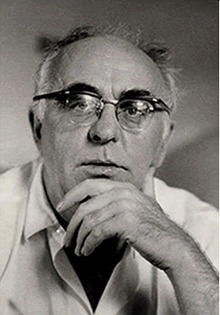A Quote by Dorianne Laux
A poem is like a child; at some point we have to let it go and trust that it will make its own way in the world.
Related Quotes
A mother should have some fantasy about her child's future. It will increase her interest in the child, for one thing. To turn the fantasy into a program to make the child fly an airplane across the country, for example, isn't the point. That's the fulfillment of the parent's own dreams. That's different. Having a fantasy - which the child will either seek to fulfill or rebel against furiously - at least gives a child some expectation to meet or reject.
Remember, loving them is the powerful foundation for influencing those you want to help. ... As a companion to that love, trust them. In some cases it may seem difficult to trust, but find some way to trust them. The children of Father in Heaven can do amazing things when they feel trusted. Every child of God in mortality chose the Savior’s plan. Trust that given the opportunity, they will do so again.
If you want to really hurt you parents, and you don't have the nerve to be gay, the least you can do is go into the arts. I'm not kidding. The arts are not a way to make a living. They are a very human way of making life more bearable. Practicing an art, no matter how well or badly, is a way to make your soul grow, for heaven's sake. Sing in the shower. Dance to the radio. Tell stories. Write a poem to a friend, even a lousy poem. Do it as well as you possible can. You will get an enormous reward. You will have created something.
The subject of the poem usually dictates the rhythm or the rhyme and its form. Sometimes, when you finish the poem and you think the poem is finished, the poem says, "You're not finished with me yet," and you have to go back and revise, and you may have another poem altogether. It has its own life to live.
Often you've read another poem that you think is so beautiful that you'd like to make something like that. And so you try to make a sonnet that works in a certain kind of way, or you try to make something that's songlike, or you create a refrain, or you love the way a poem works in two line stanzas and you try to do that.
It was early on in 1965 when I wrote some of my first poems. I sent a poem to 'Harper's' magazine because they paid a dollar a line. I had an eighteen-line poem, and just as I was putting it into the envelope, I stopped and decided to make it a thirty-six-line poem. It seemed like the poem came back the next day: no letter, nothing.
I think all writing is about writing. All writing is a way of going out and exploring the world, of examining the way we live, and therefore any words you put down on the page about life will, at some level, also be words about words. It's still amazing, though, how many poems can be read as being analogous to the act of writing a poem. "Go to hell, go into detail, go for the throat" is certainly about writing, but it's also hopefully about a way of living.
Never lie to a child about doctors or medicine or anything else; but if you feel, as some people seem to feel, that life without lying is an impossibility, at least don't lie about the amount of pain likely to result from a surgical procedure, or about the taste of some medicine. If you know that something to be done will hurt, say so; if a mixture to be swallowed is unpleasant, say so. If you deceive a child once in such matters, do not imagine that it will trust you again. You do not deserve trust, and you will not get it.




































